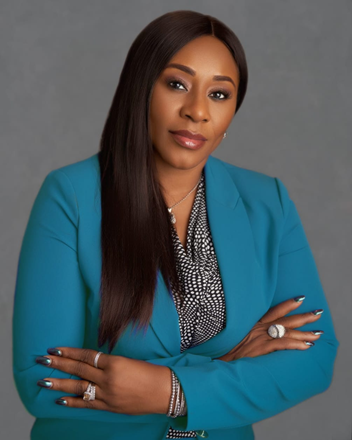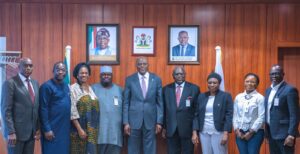Championing Women’s Access to Finance: Uche Uzoebo’s Mission to Deepen Financial Inclusion in Nigeria

At the heart of Nigeria’s evolving financial ecosystem, Uche Uzoebo, the dynamic Managing Director and CEO of Shared Agent Network Expansion Facilities (SANEF) Limited, is making a compelling case for financial inclusion strategies that put women at the center. Her message was loud and clear at the recently concluded RegTech Conference 2025 in Lagos: gender-inclusive financial services are essential for equitable economic growth.
Moderating a high-level panel discussion titled “From Borders to Bridges: Leveraging Digital Infrastructure to Drive Financial Inclusion through a Multi-Stakeholder Approach”, Uzoebo brought together leading voices across banking, fintech, policy, and international development to spotlight the potential of digital infrastructure in accelerating financial inclusion across the continent.
Breaking Down Barriers for Women
Drawing from global data, Uzoebo highlighted a troubling reality: 27% of the world’s adult population remains unbanked, and another 50% is underbanked, according to Lucidity Insights. This financial gap disproportionately affects women, many of whom face unique barriers such as limited digital literacy and deeply rooted cultural norms that restrict their access to formal financial systems.
Uzoebo emphasized that empowering women through access to finance is not just a moral imperative, but also an economic one. She called for more targeted interventions and inclusive policy frameworks to address these gender-based disparities. “Women must be supported with tailored financial products and services, supported by robust digital identity systems and interoperable payment platforms,” she noted.

A Coalition of Changemakers
The panel included heavyweights such as Jacqueline Mpare (Head of Agency Banking, Ecobank Group), Ajibade Laolu-Adewale (Chief Partnership & Ecosystems Officer, Wema Bank), Dr. Henry Clarke Kisembo (Executive Chairman, Development Associates Link International), Jean Jacques Kajuga (COO, RSwitch Rwanda), and Isa Aliyushata (Regional Advisor, Corum Group Limited). Together, they discussed how stakeholders could work collaboratively to close the gender gap in financial access.
Mpare shared Ecobank’s commitment to supporting women-led businesses through targeted financing and non-financial services. Meanwhile, Aliyushata underscored the importance of embedding financial literacy into national education curriculums to foster a culture of financial empowerment from a young age.
The consensus was clear: successful financial inclusion must be multi-pronged—spanning legislative support, infrastructure development, public-private partnerships, and gender-responsive financial literacy initiatives.
SANEF: Leading by Example
The spotlight wasn’t just on Uzoebo’s advocacy her organization, SANEF, was recognized as the 2025 Financial Literacy Champion at the RegTech Awards. This honor celebrates SANEF’s relentless commitment to driving inclusive finance through agent banking, nationwide expansion, and impactful education programs. Under Uzoebo’s leadership, SANEF continues to broaden access to digital financial services, particularly in underserved and rural communities.
Through partnerships with regulators, banks, and mobile money operators, SANEF is empowering millions of Nigerians to take control of their financial futures—many of them women who, for the first time, are gaining access to tools and services that can transform their lives and livelihoods.
Looking Ahead
As the conversation around financial inclusion evolves, Uche Uzoebo remains a passionate advocate for a future where no one especially no woman is left behind. Her call to action is simple but profound: “Inclusion is not optional. It’s foundational for sustainable development.”
With leaders like Uzoebo driving the agenda, Nigeria’s financial landscape is gradually becoming more inclusive, more digital, and more equitable. The journey is ongoing, but the path is clear—financial inclusion, especially for women, is not just a goal. It’s a necessity.


